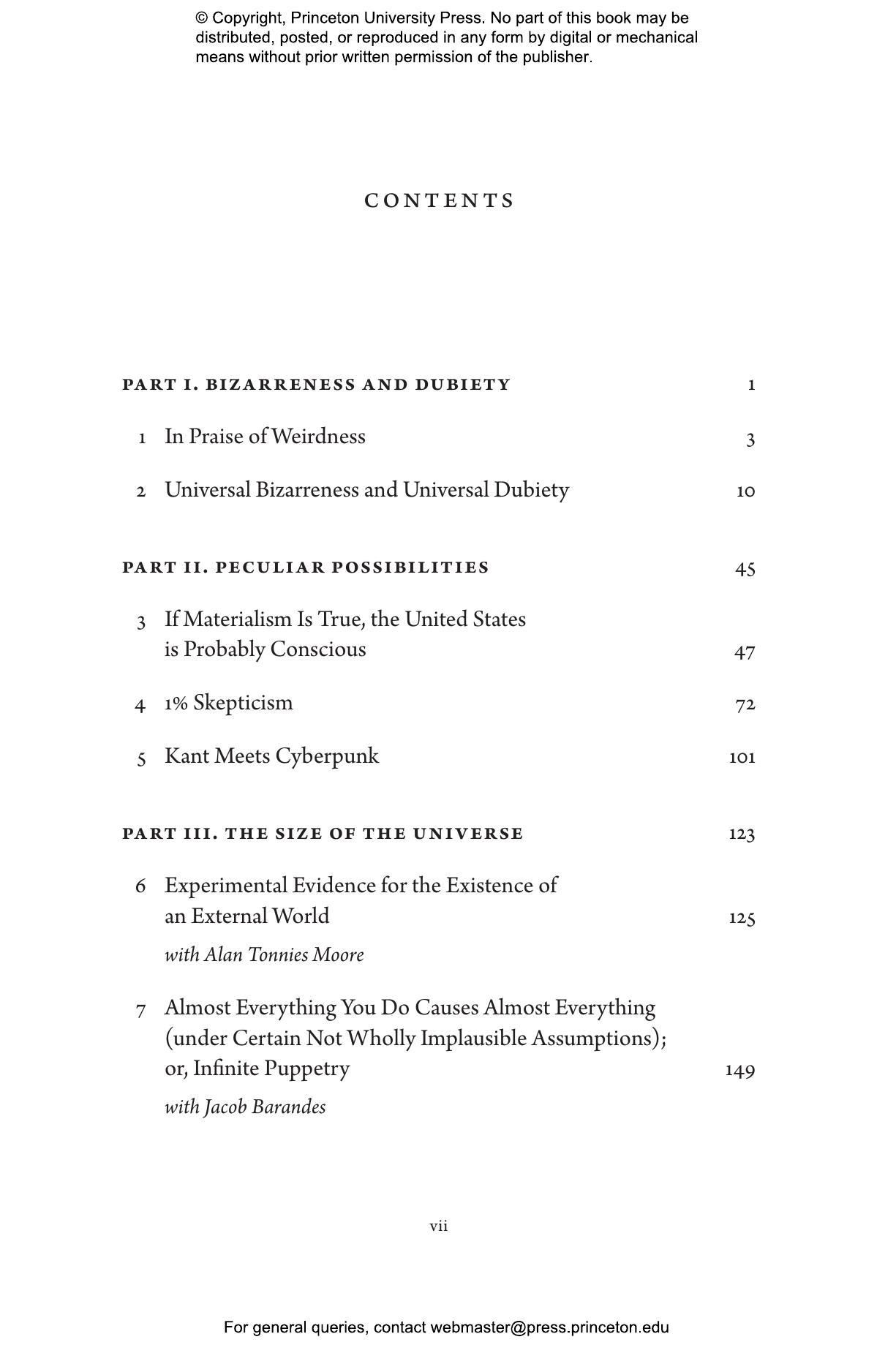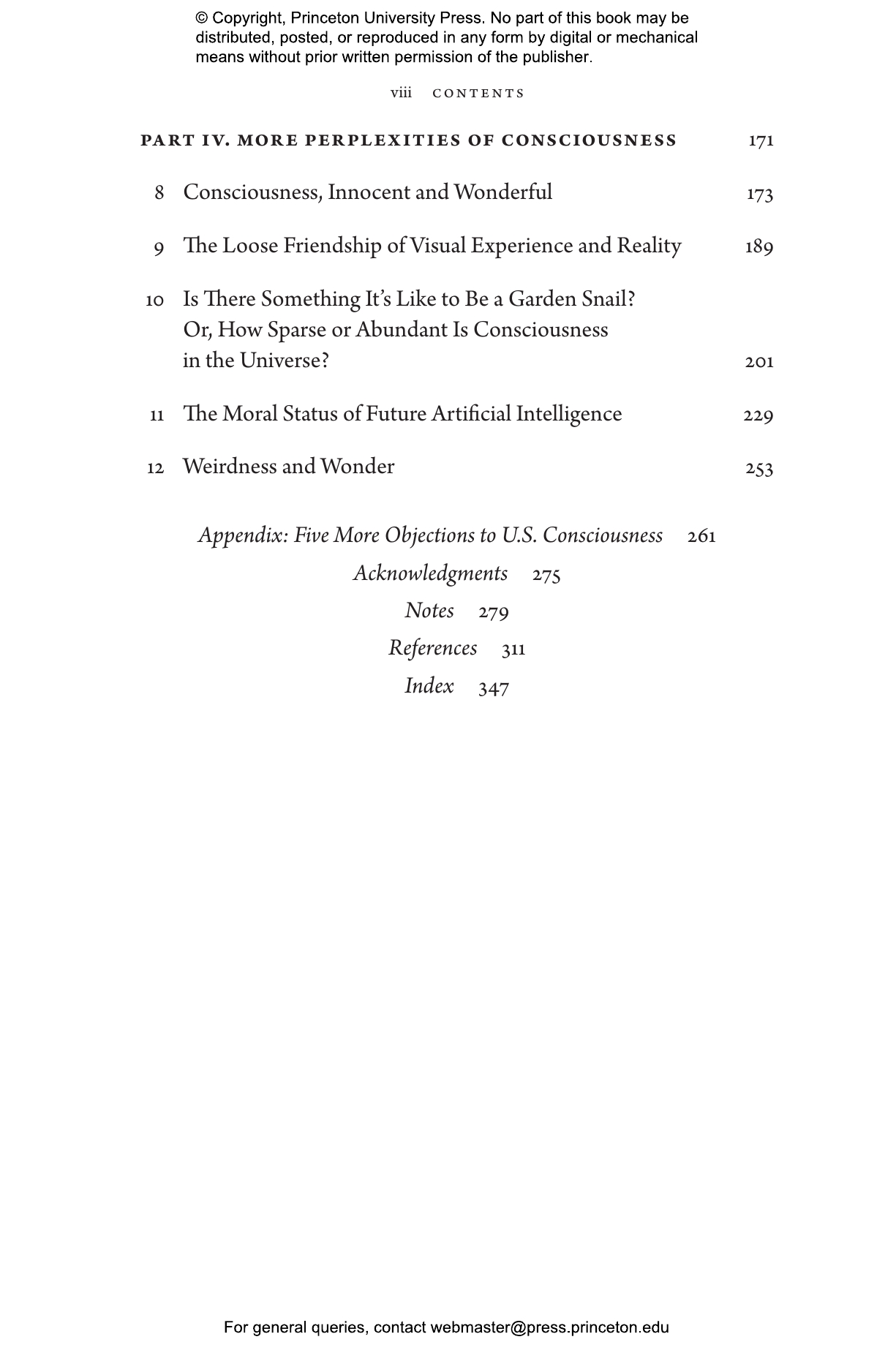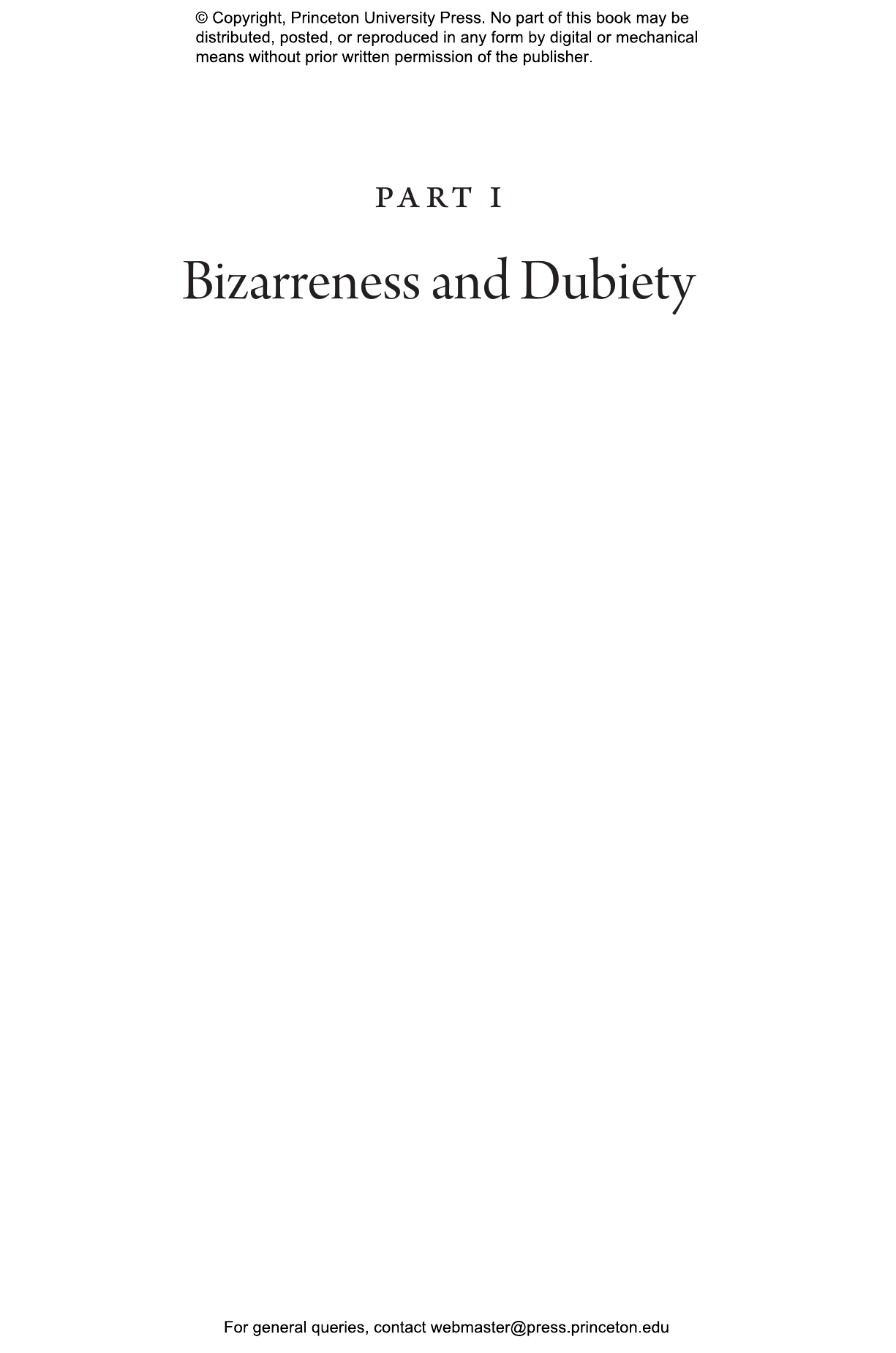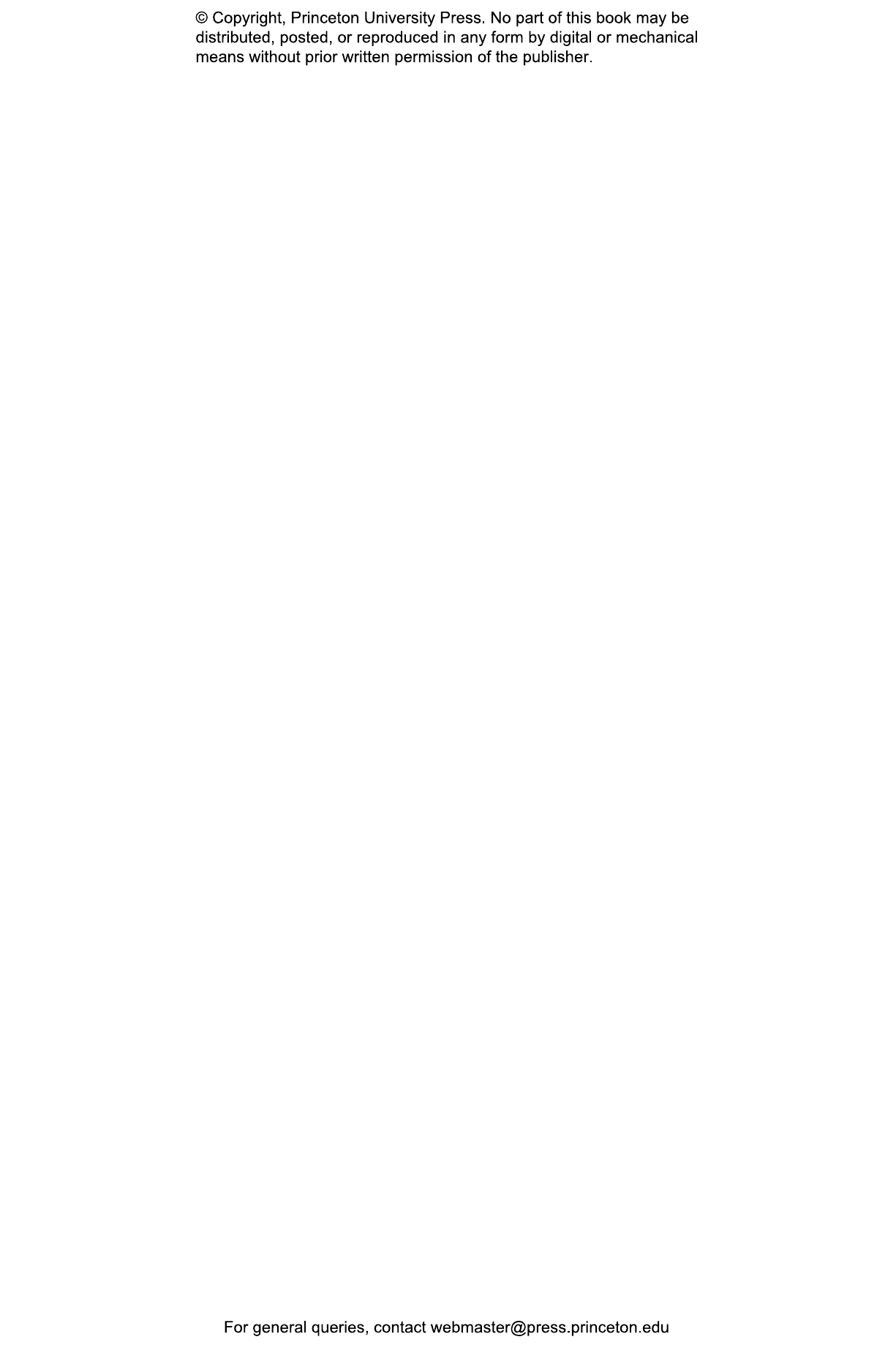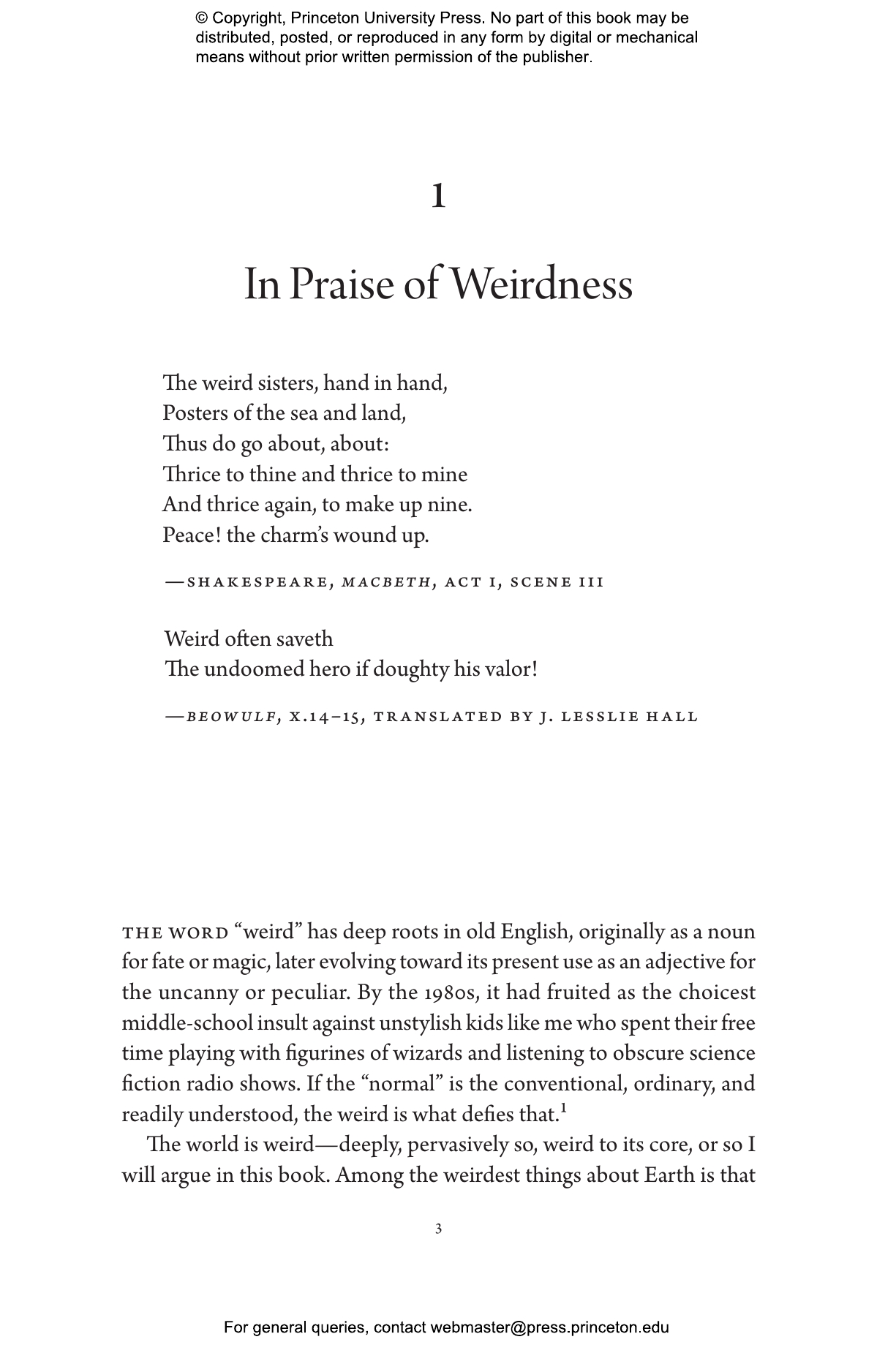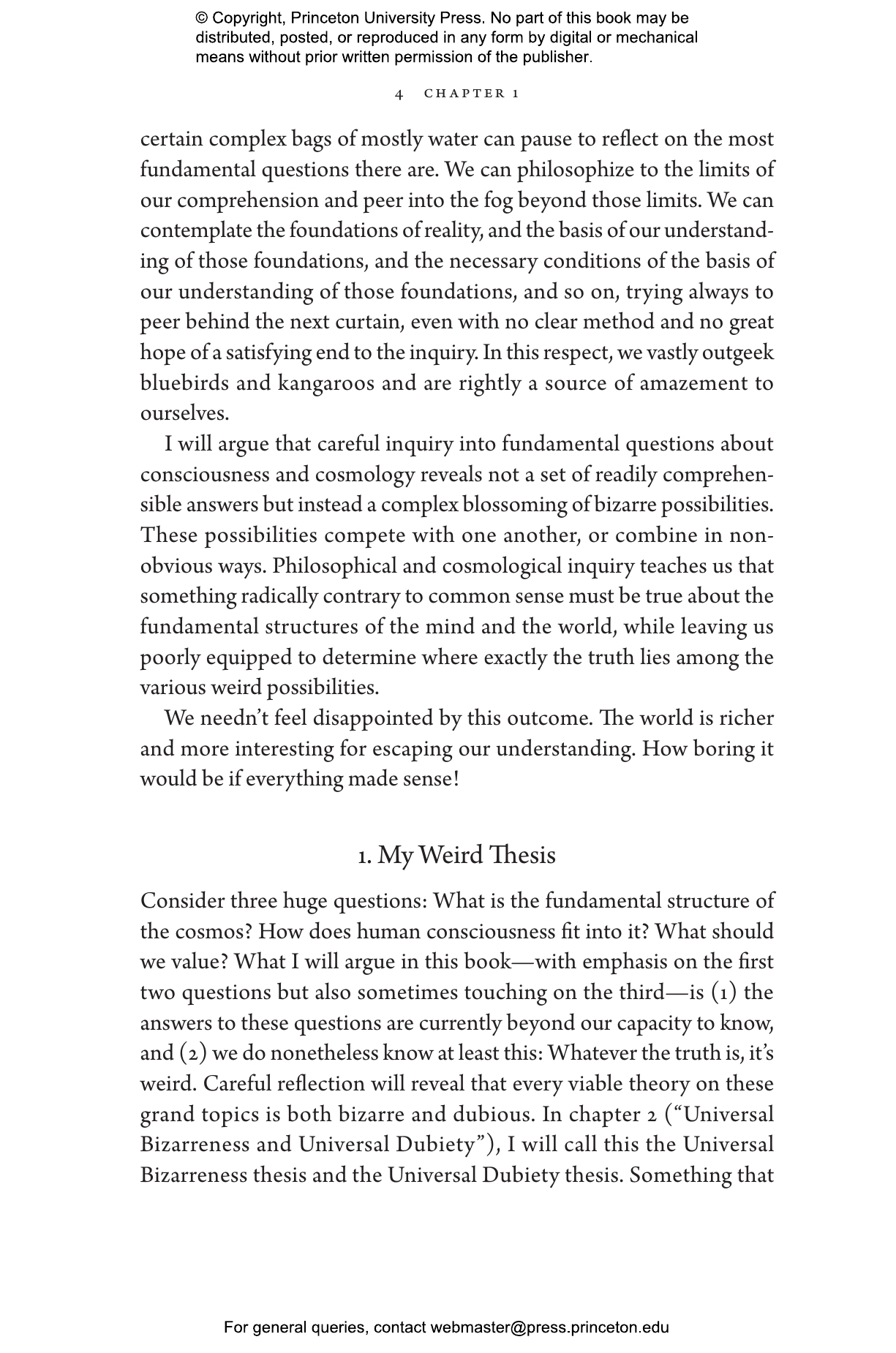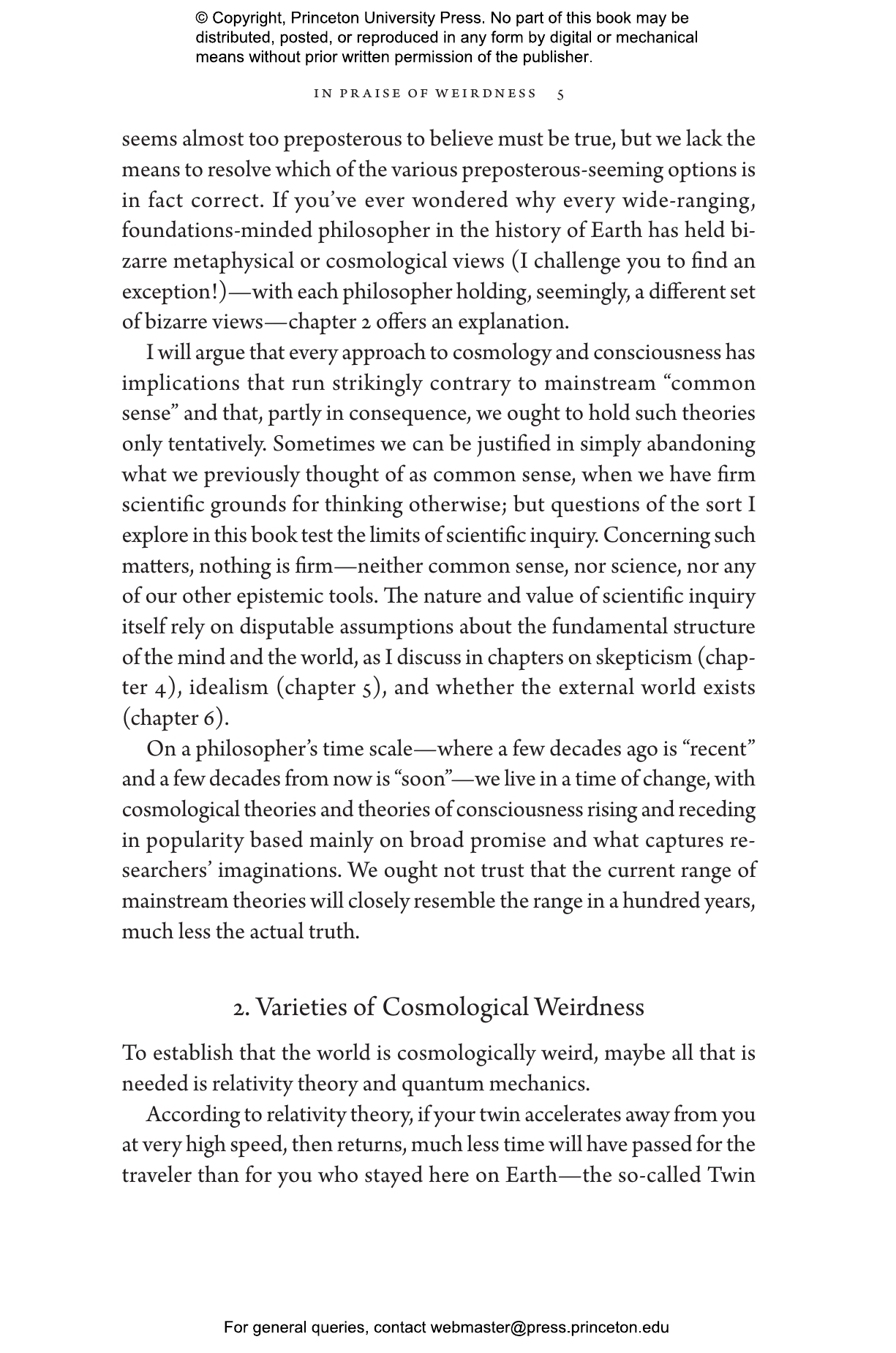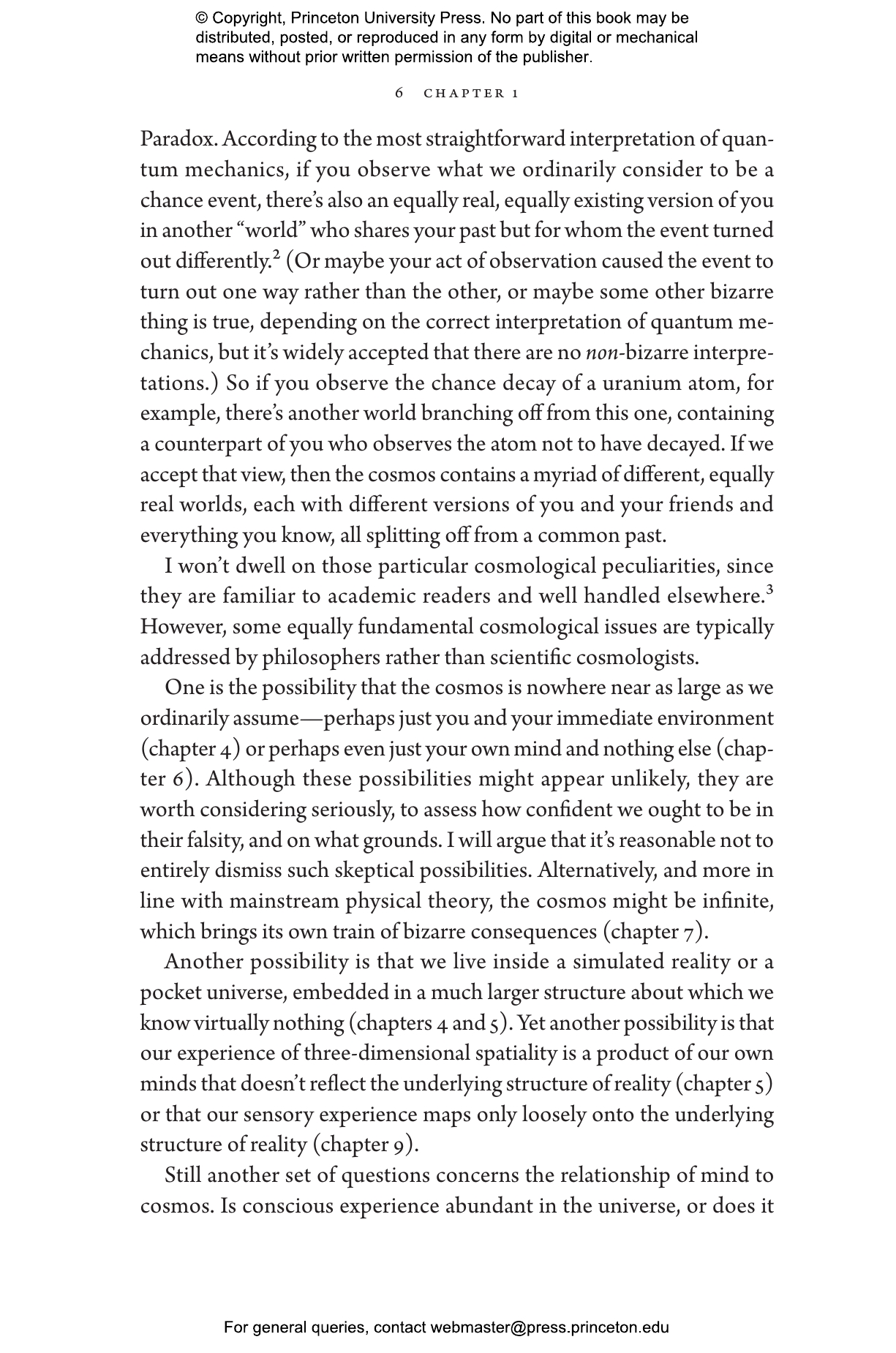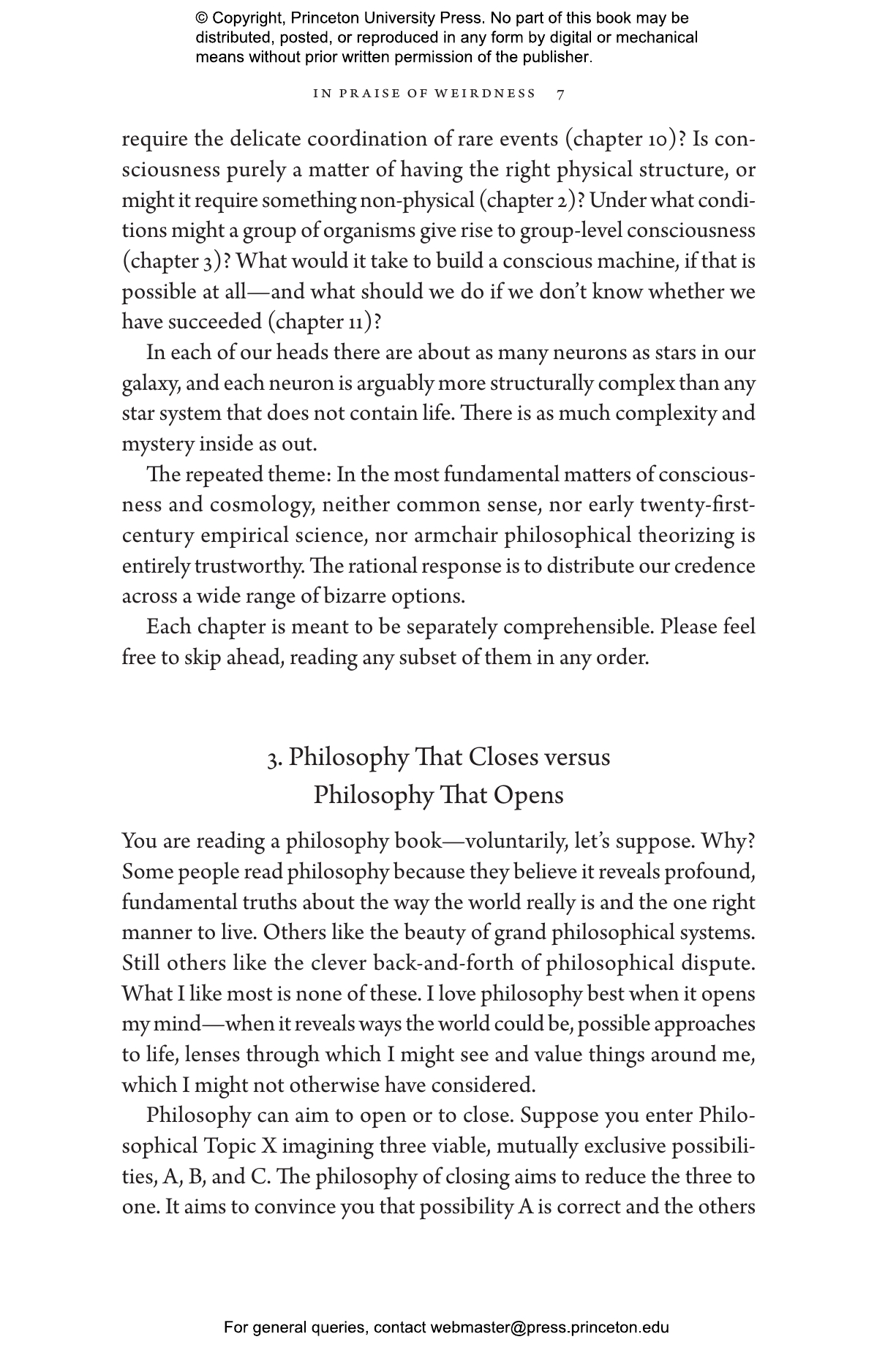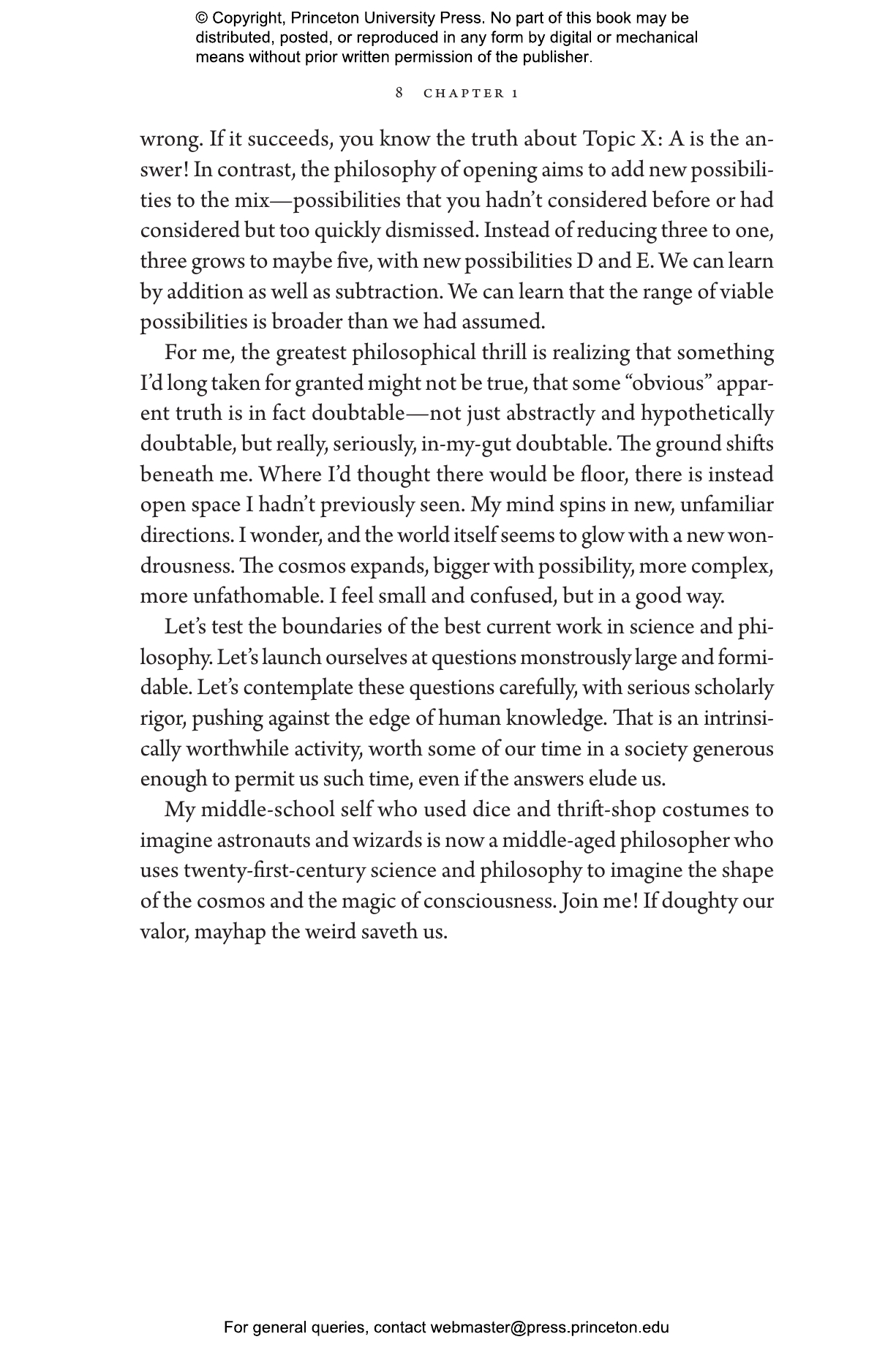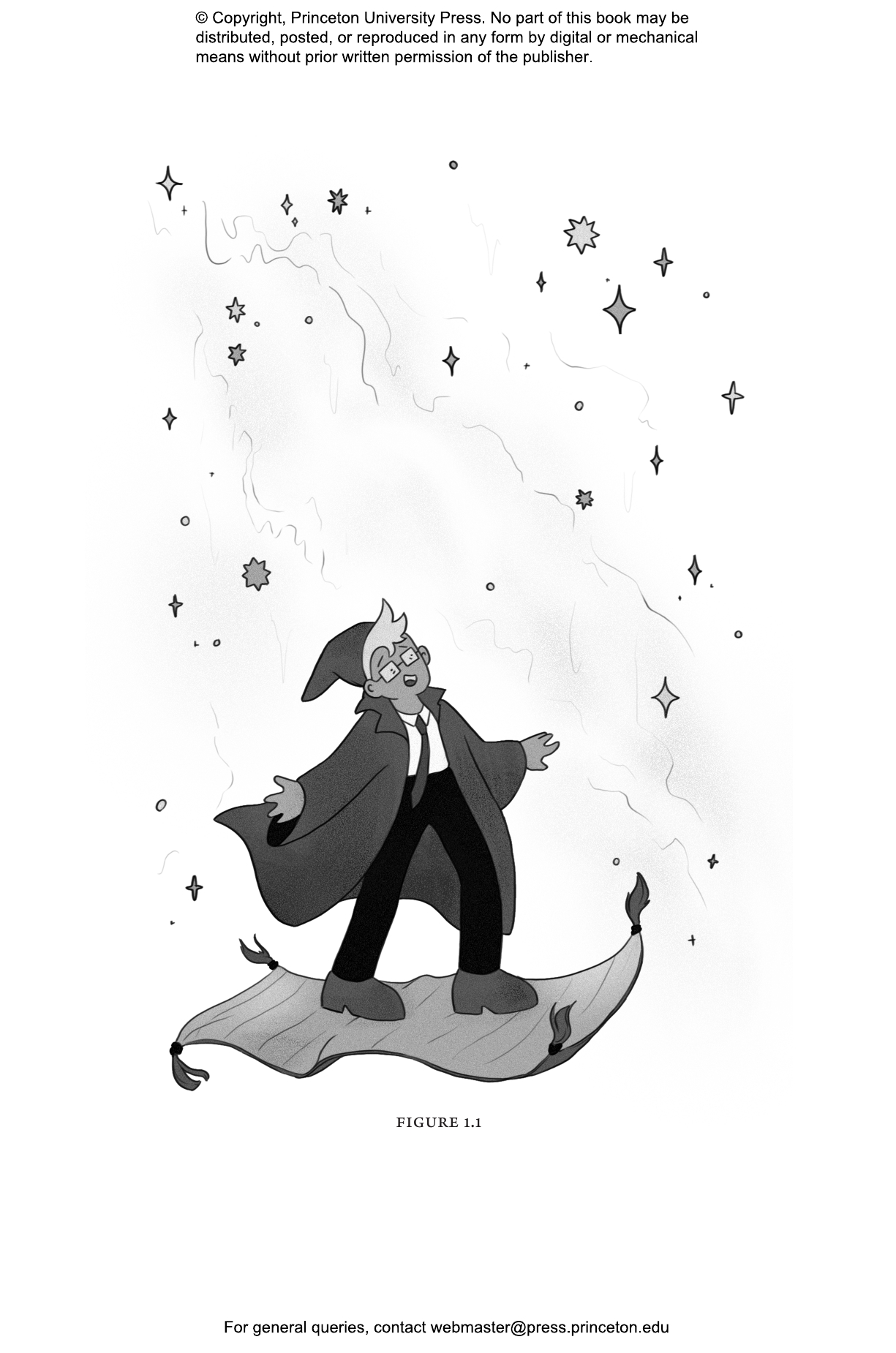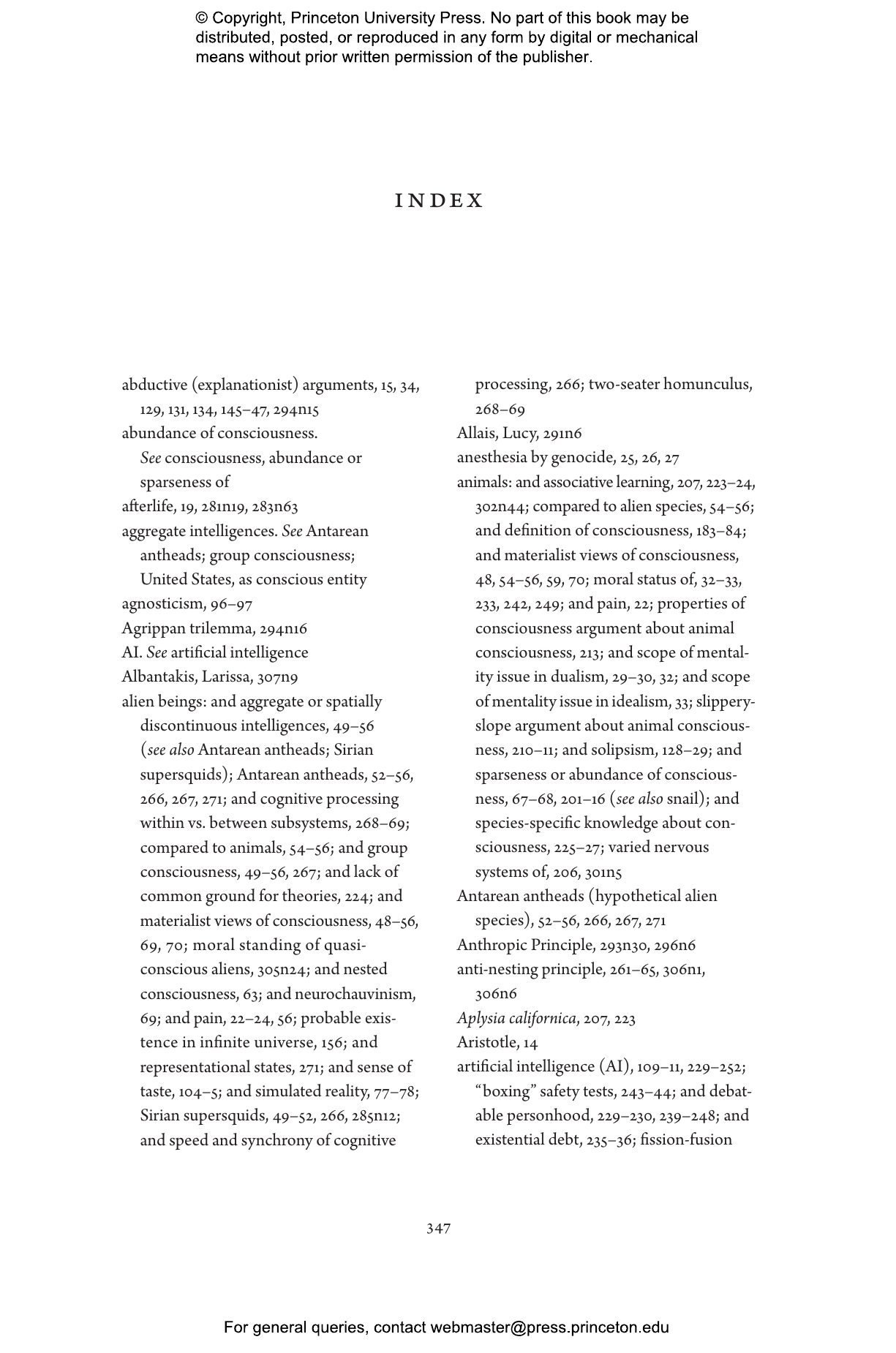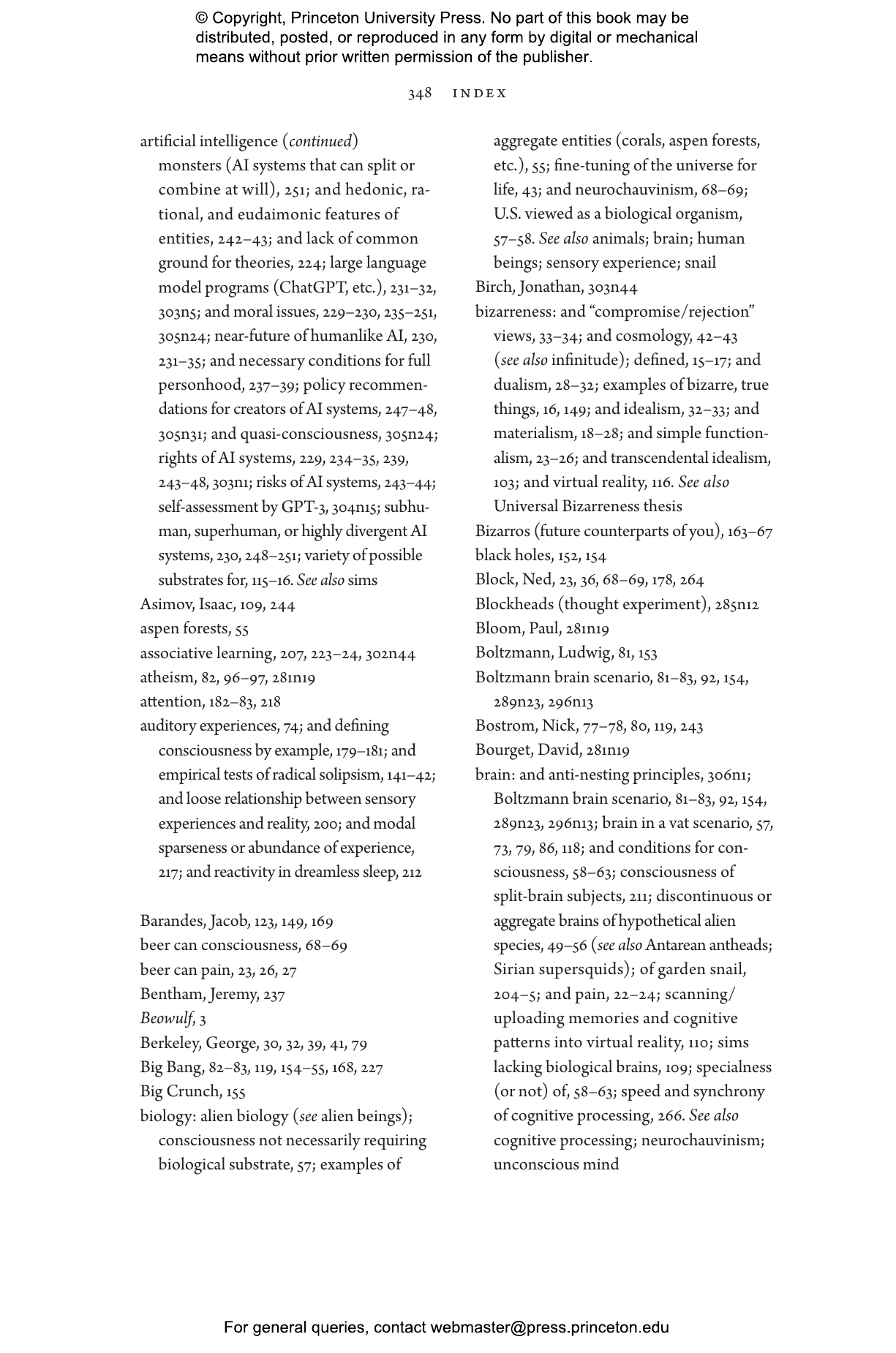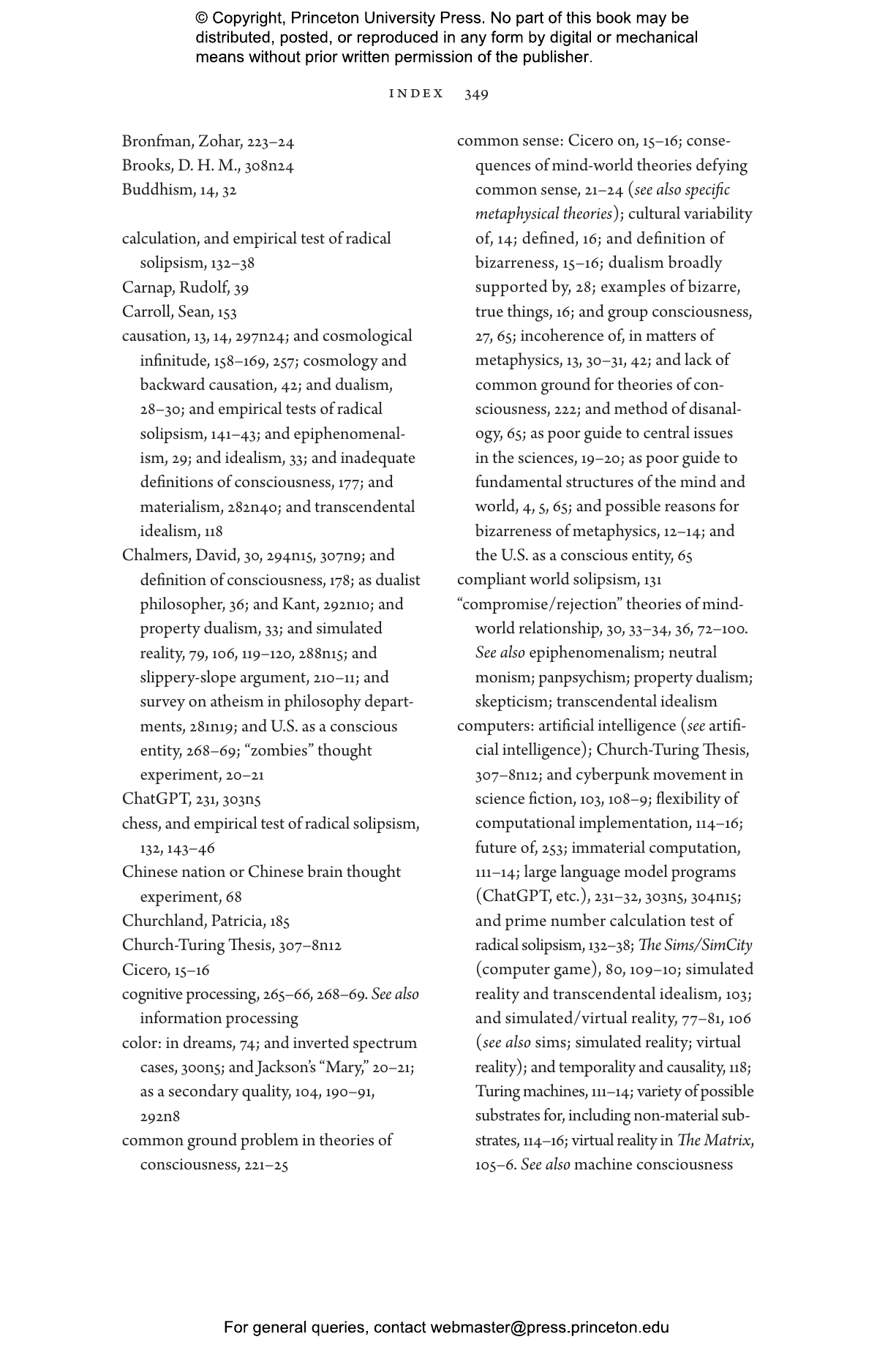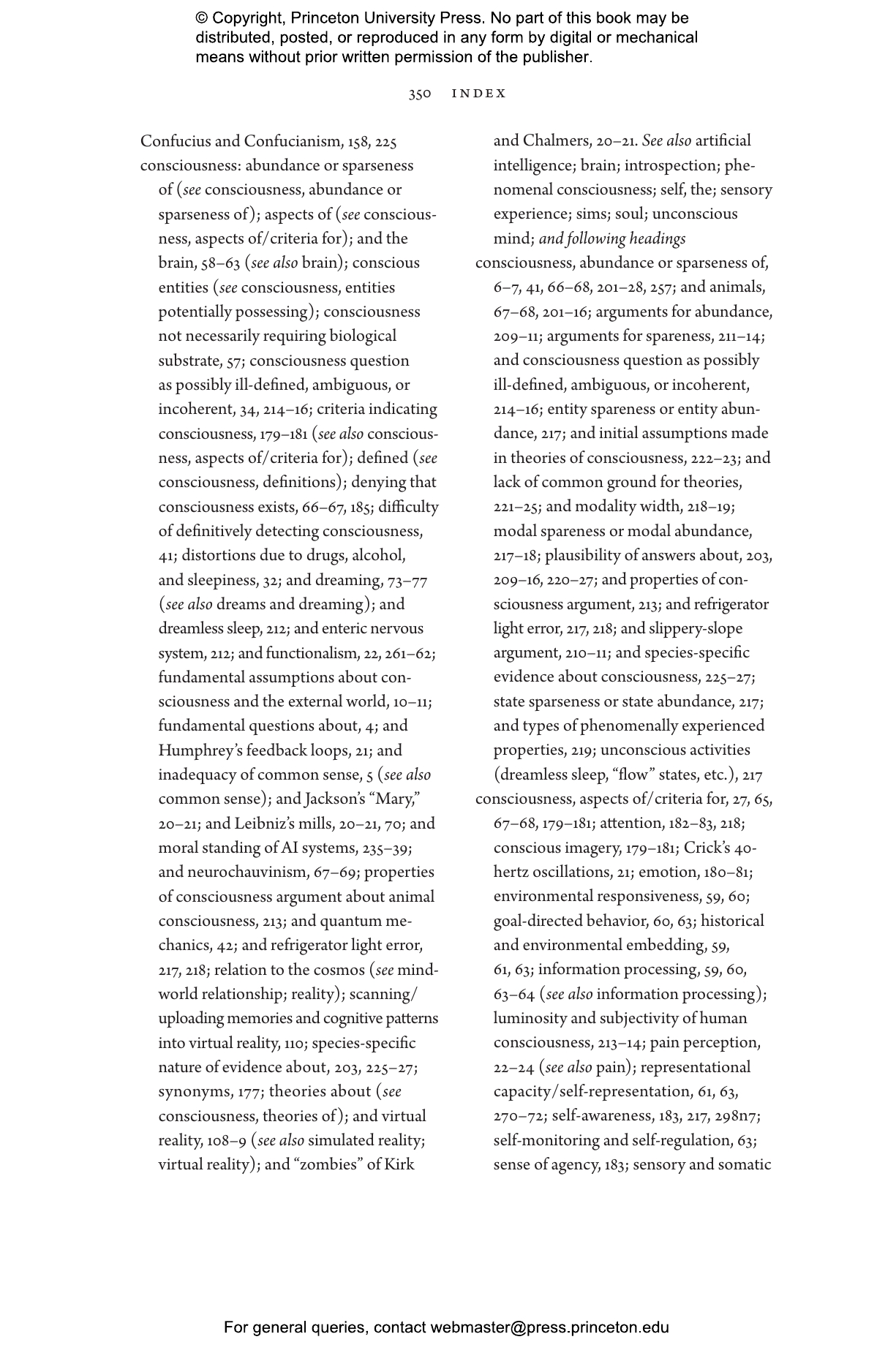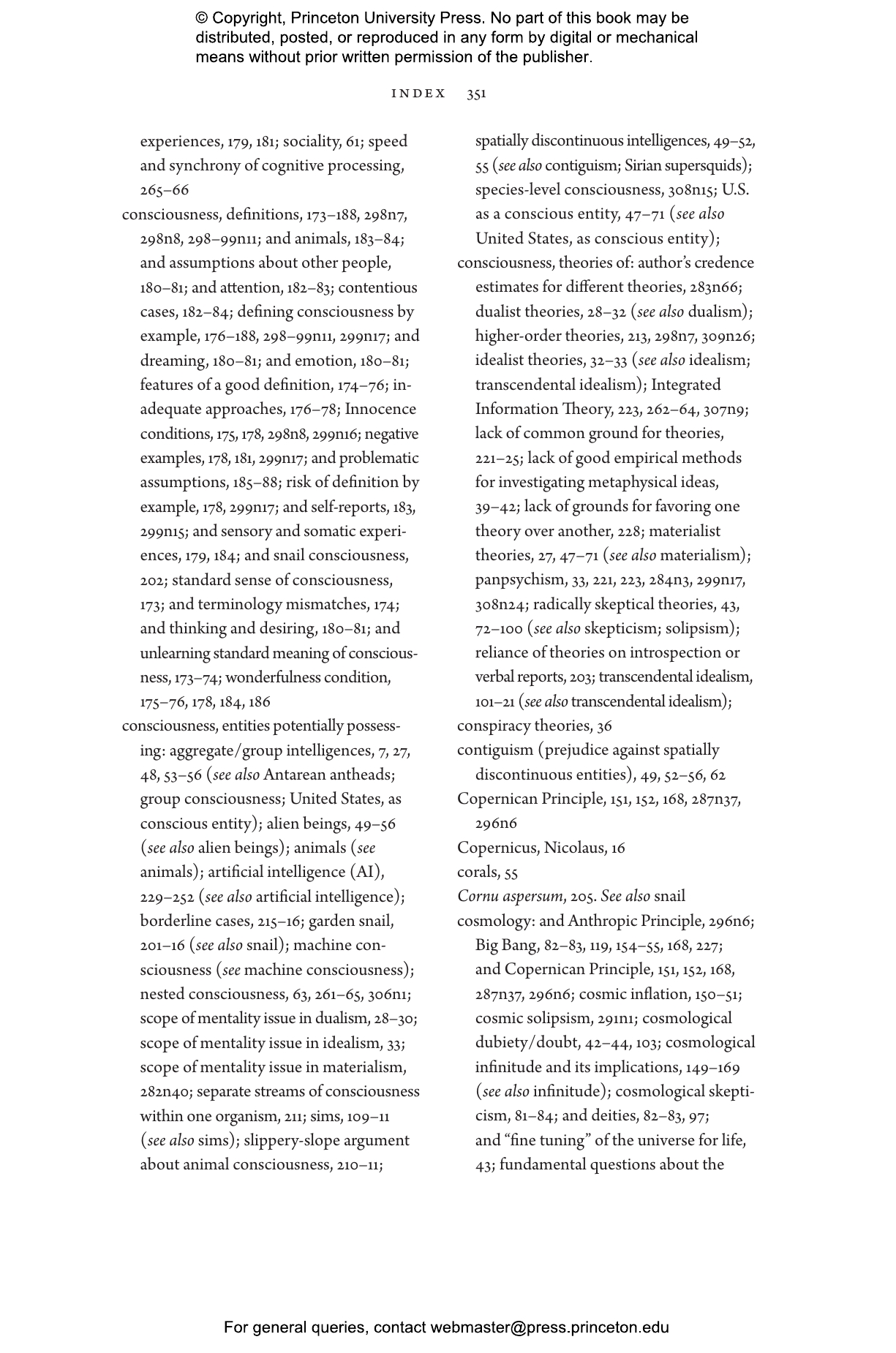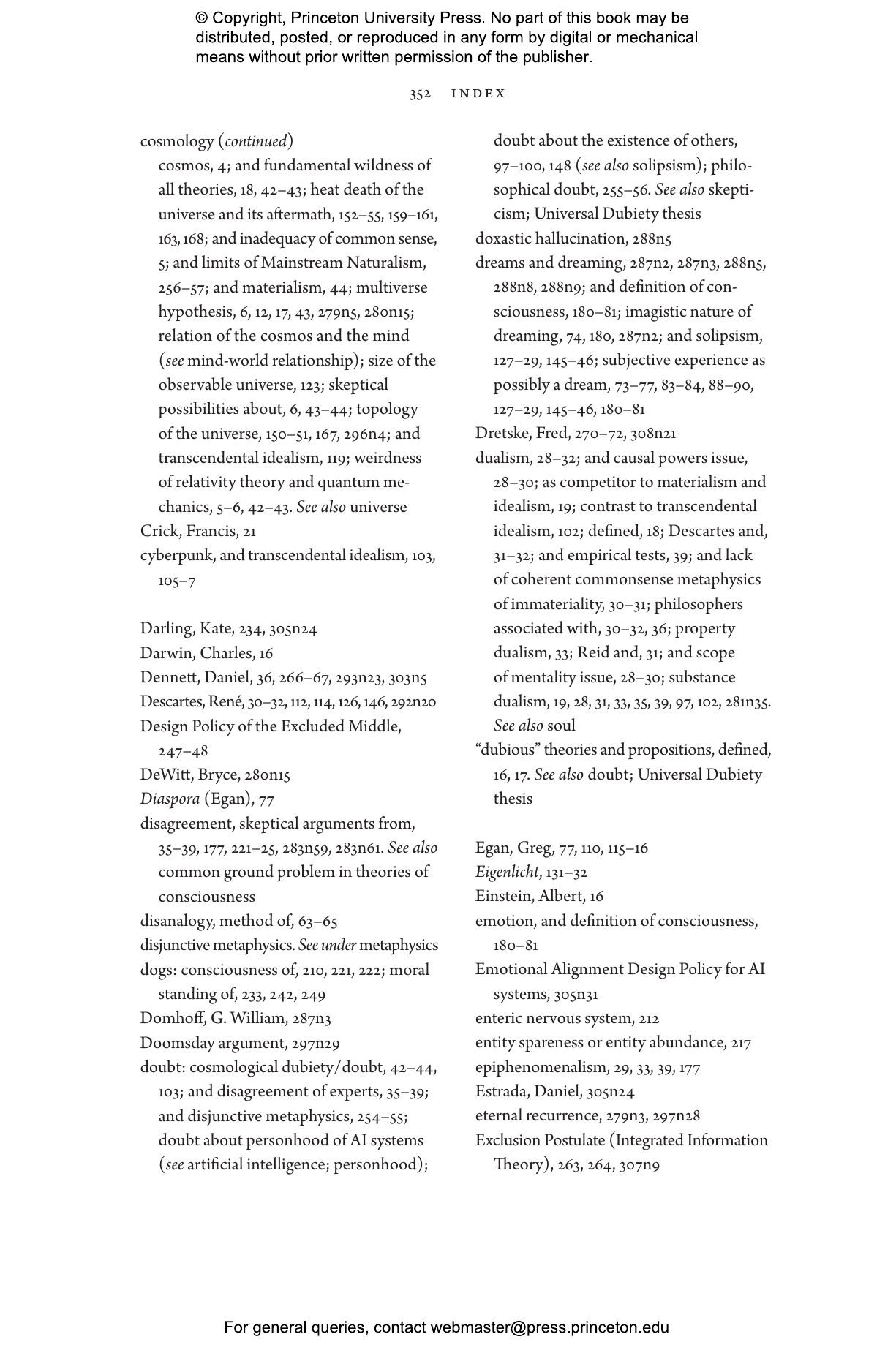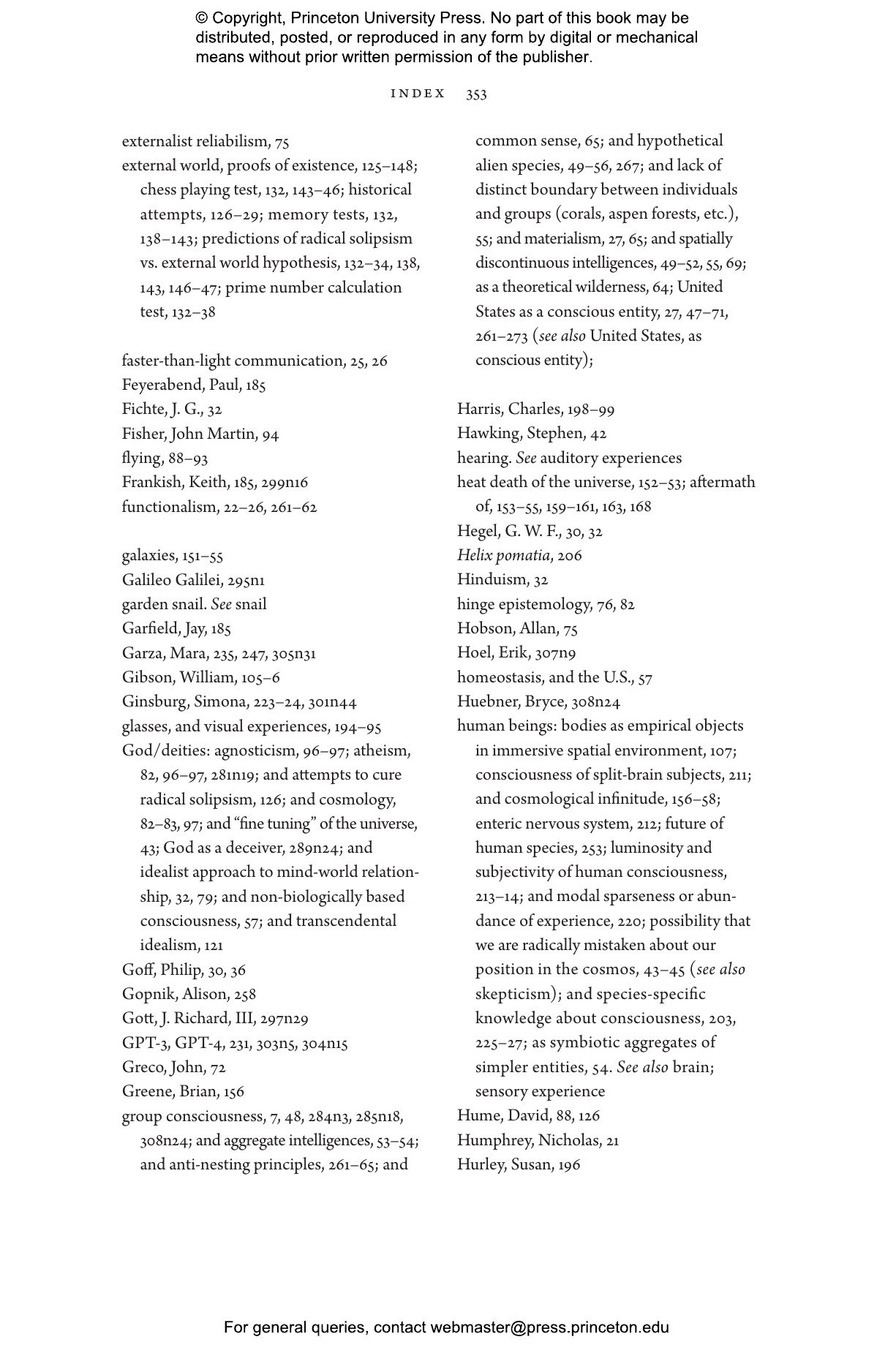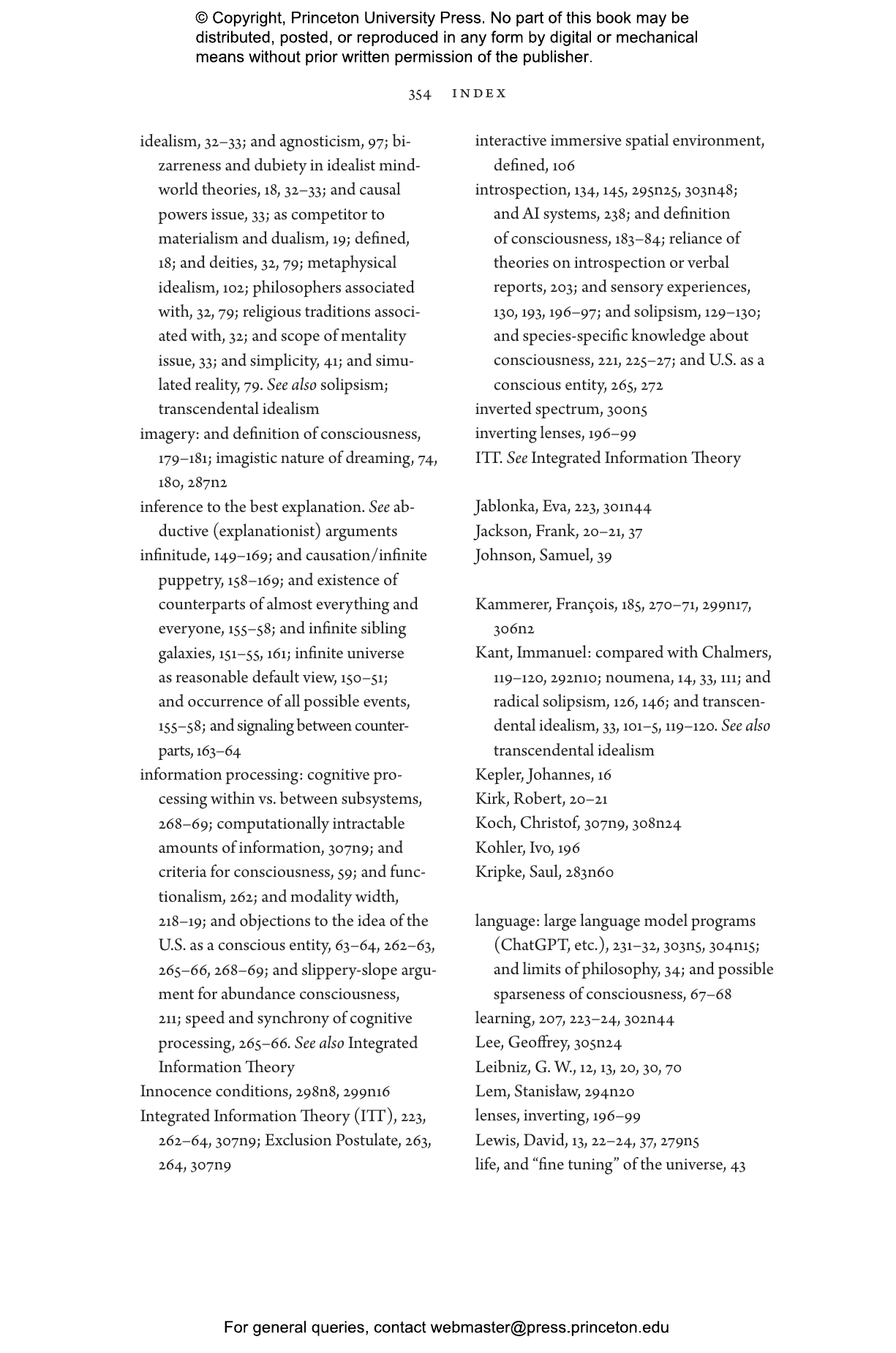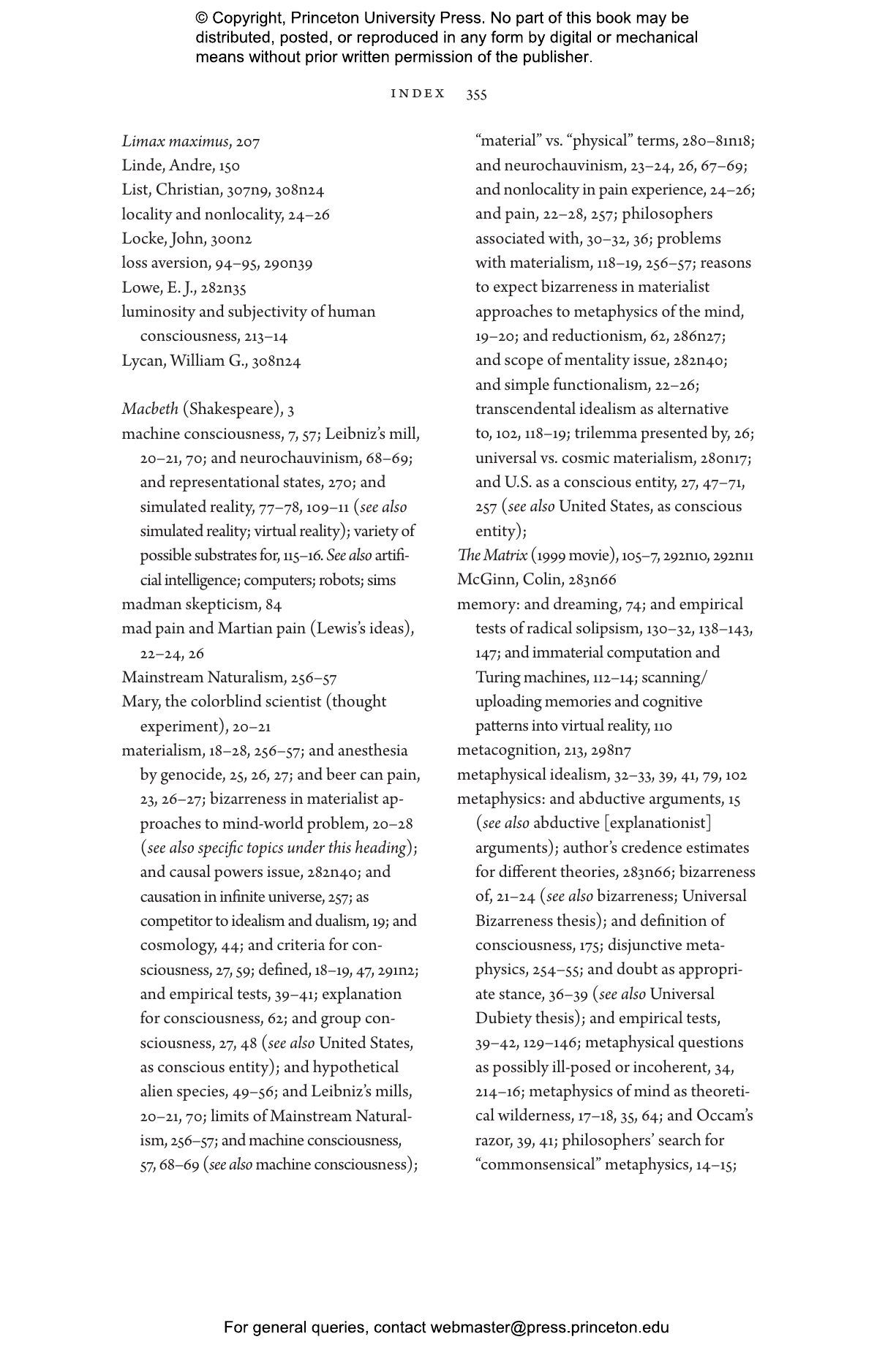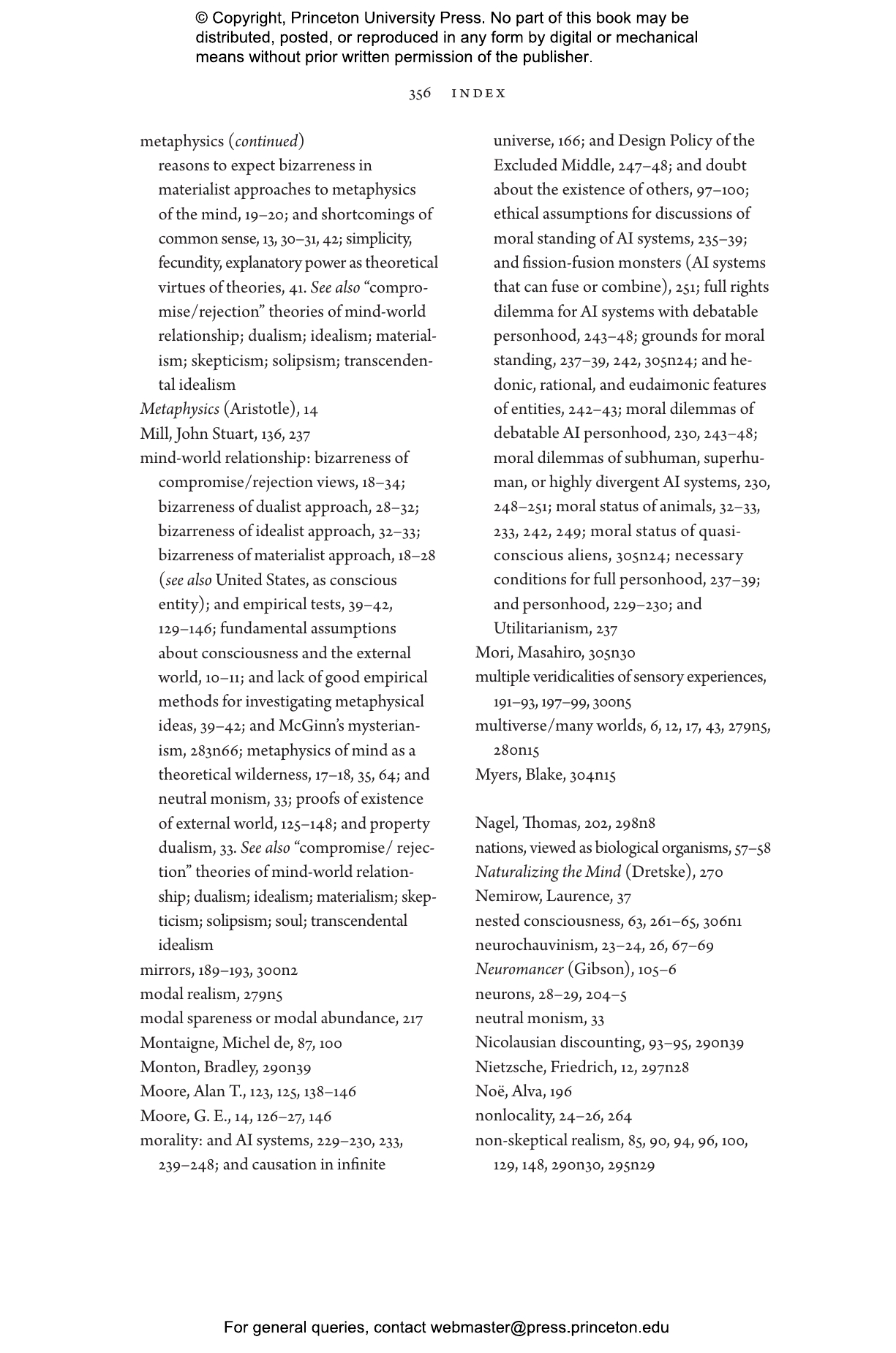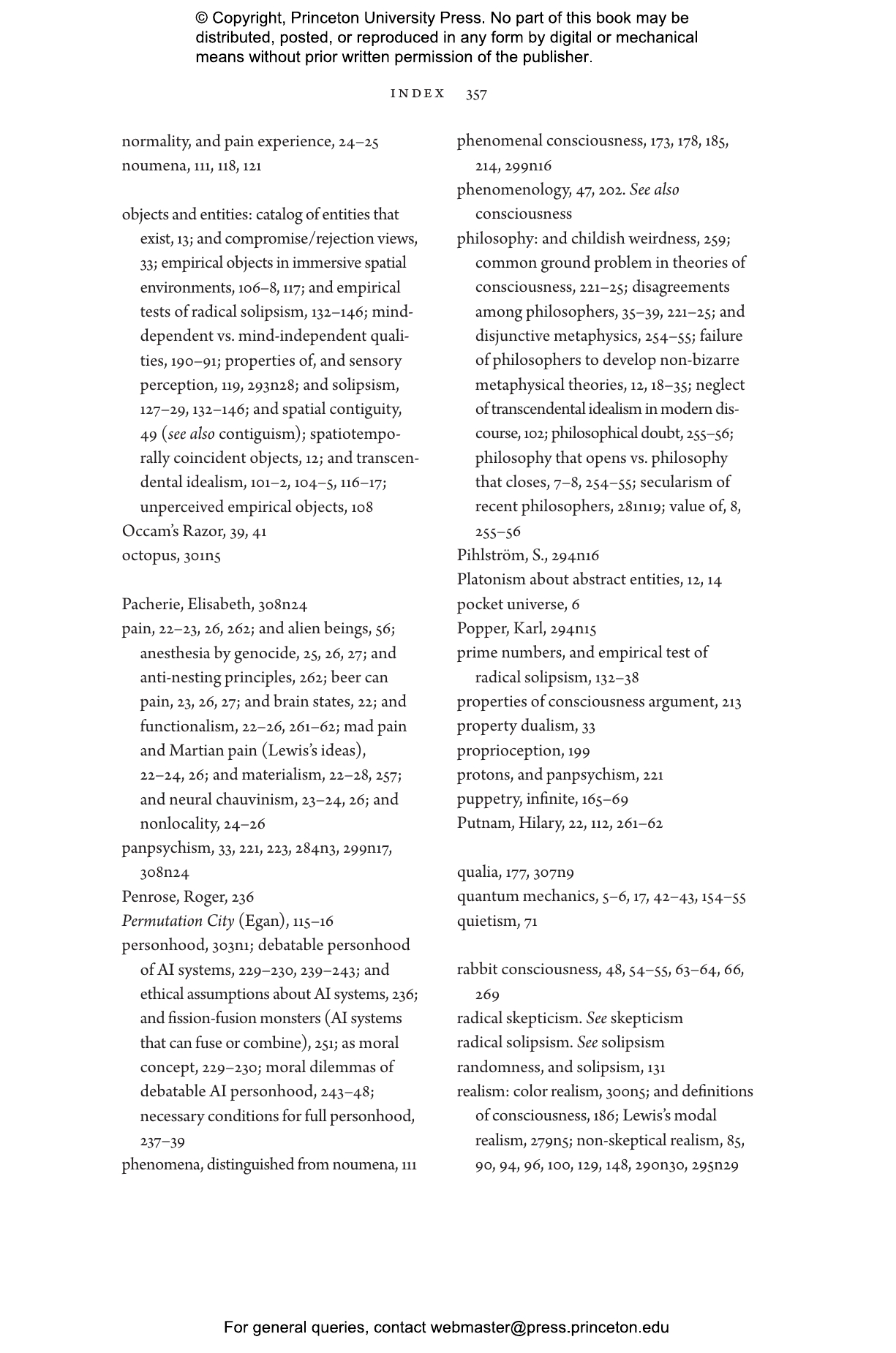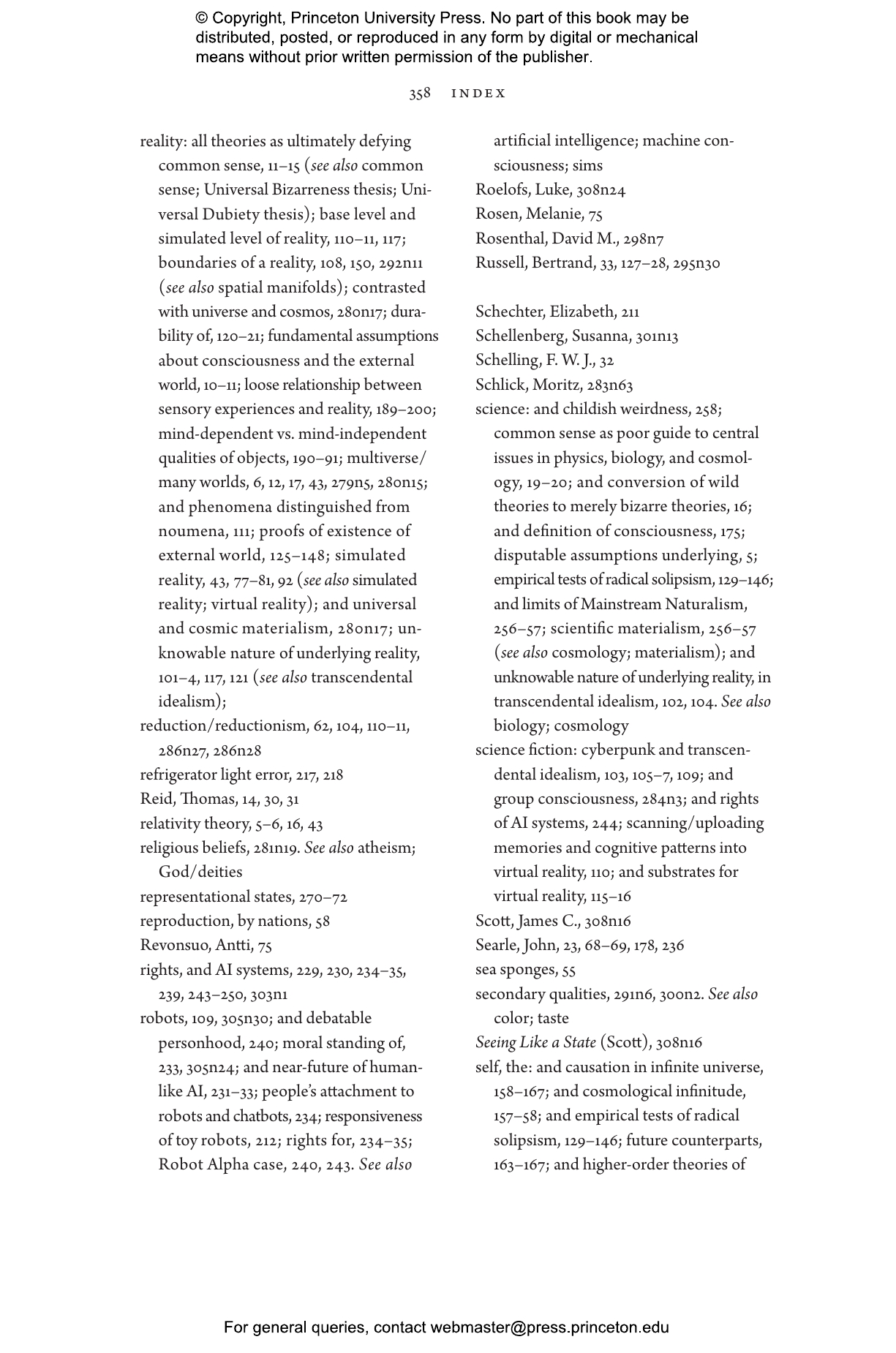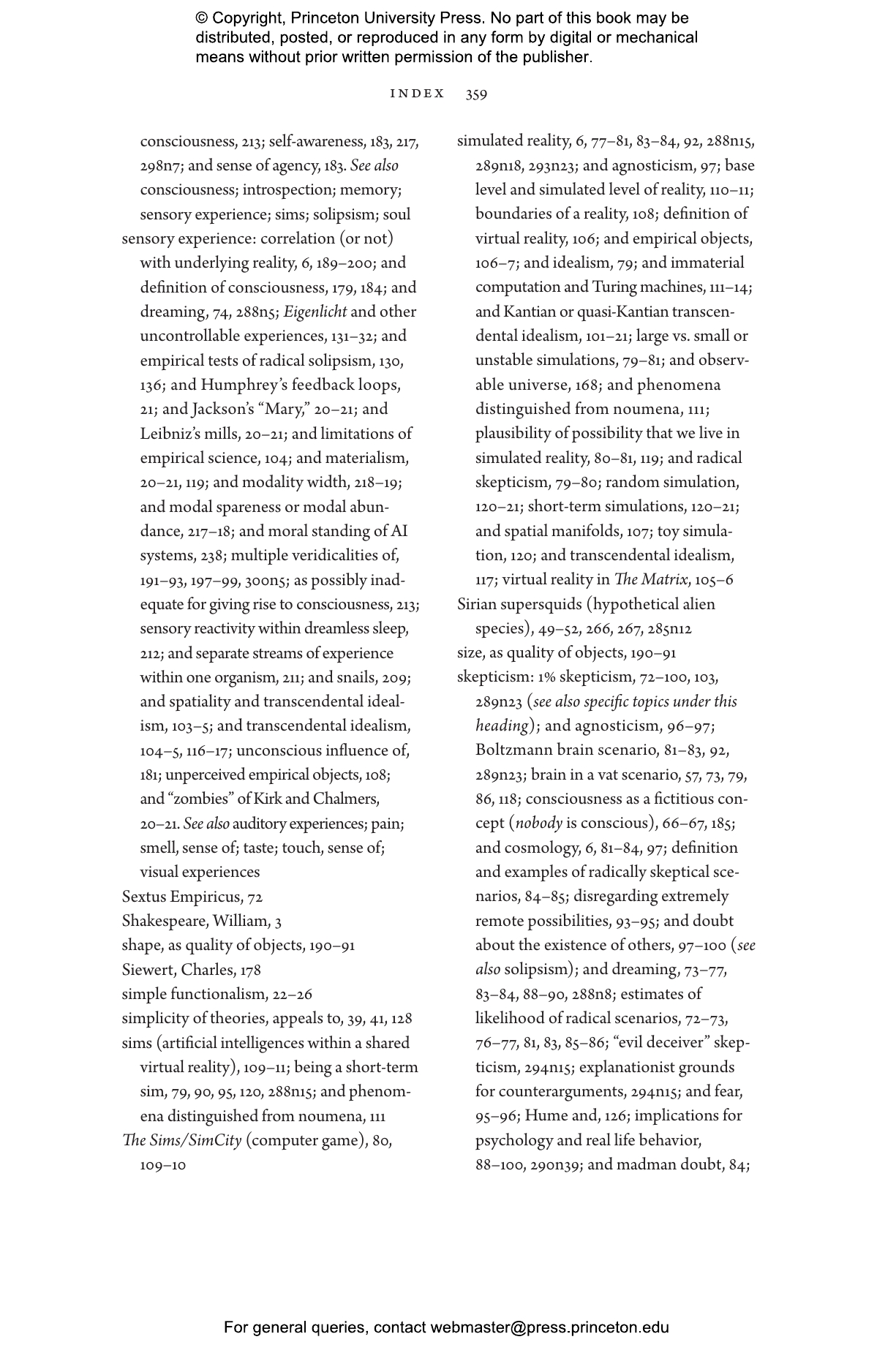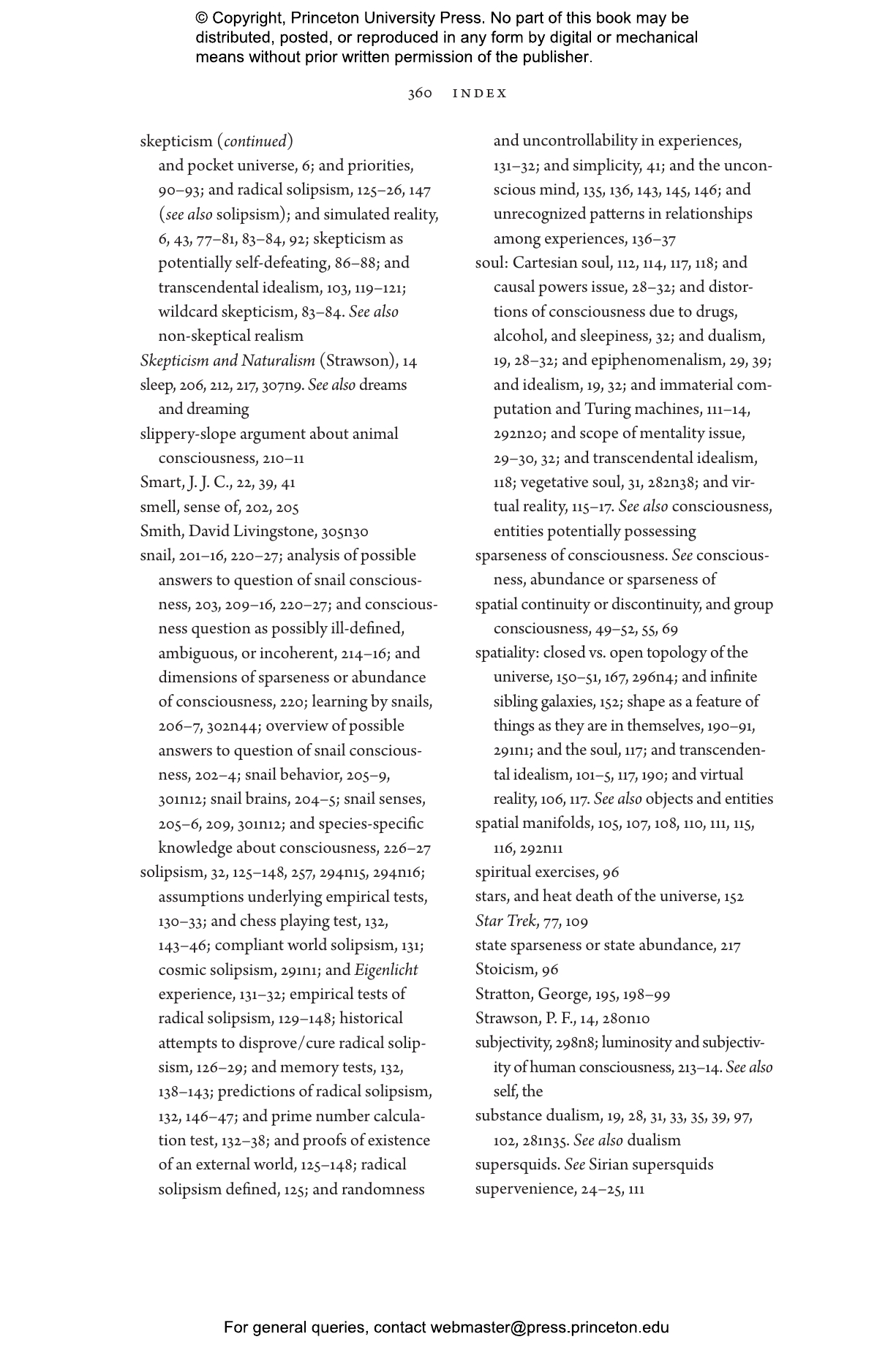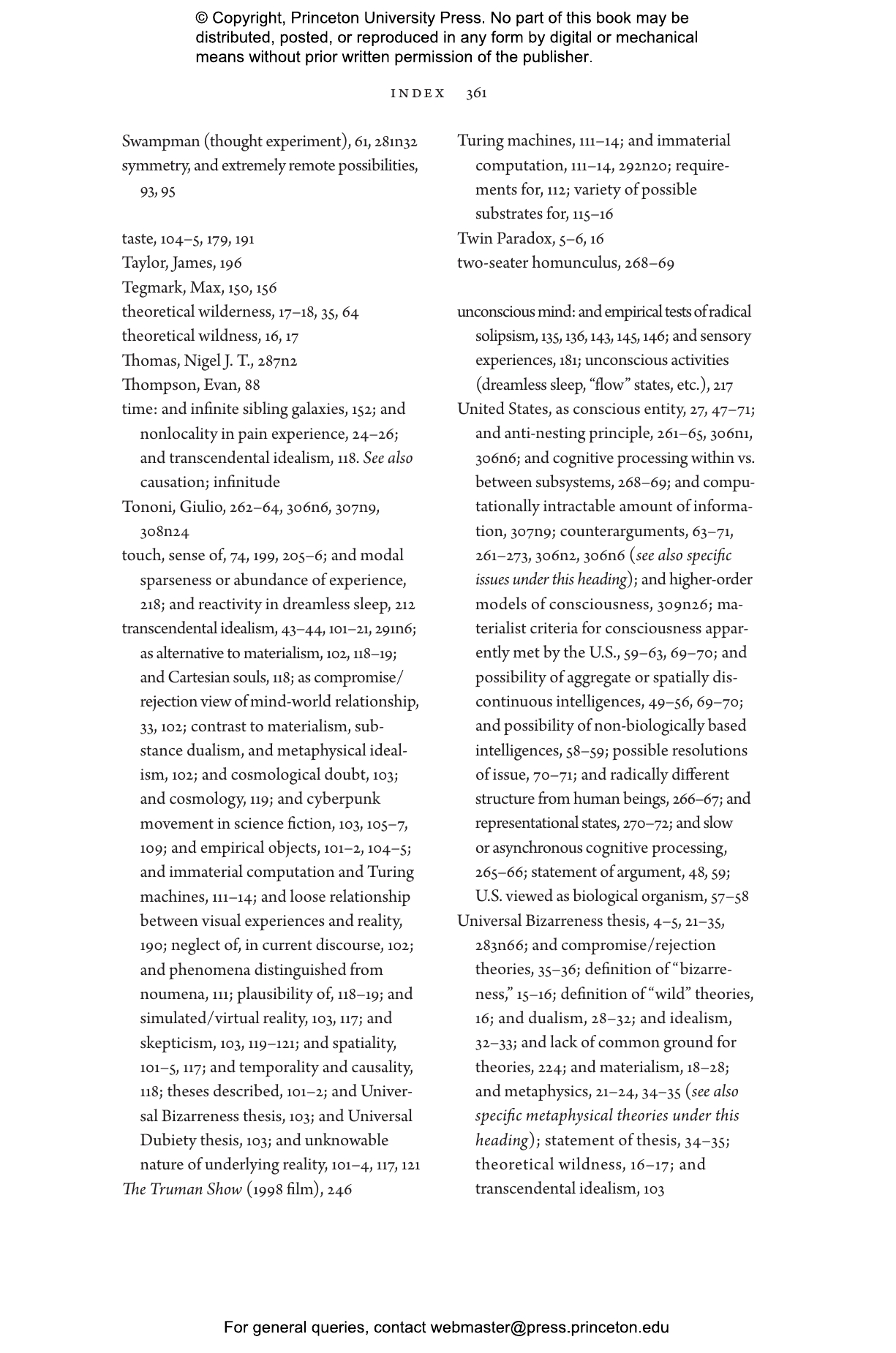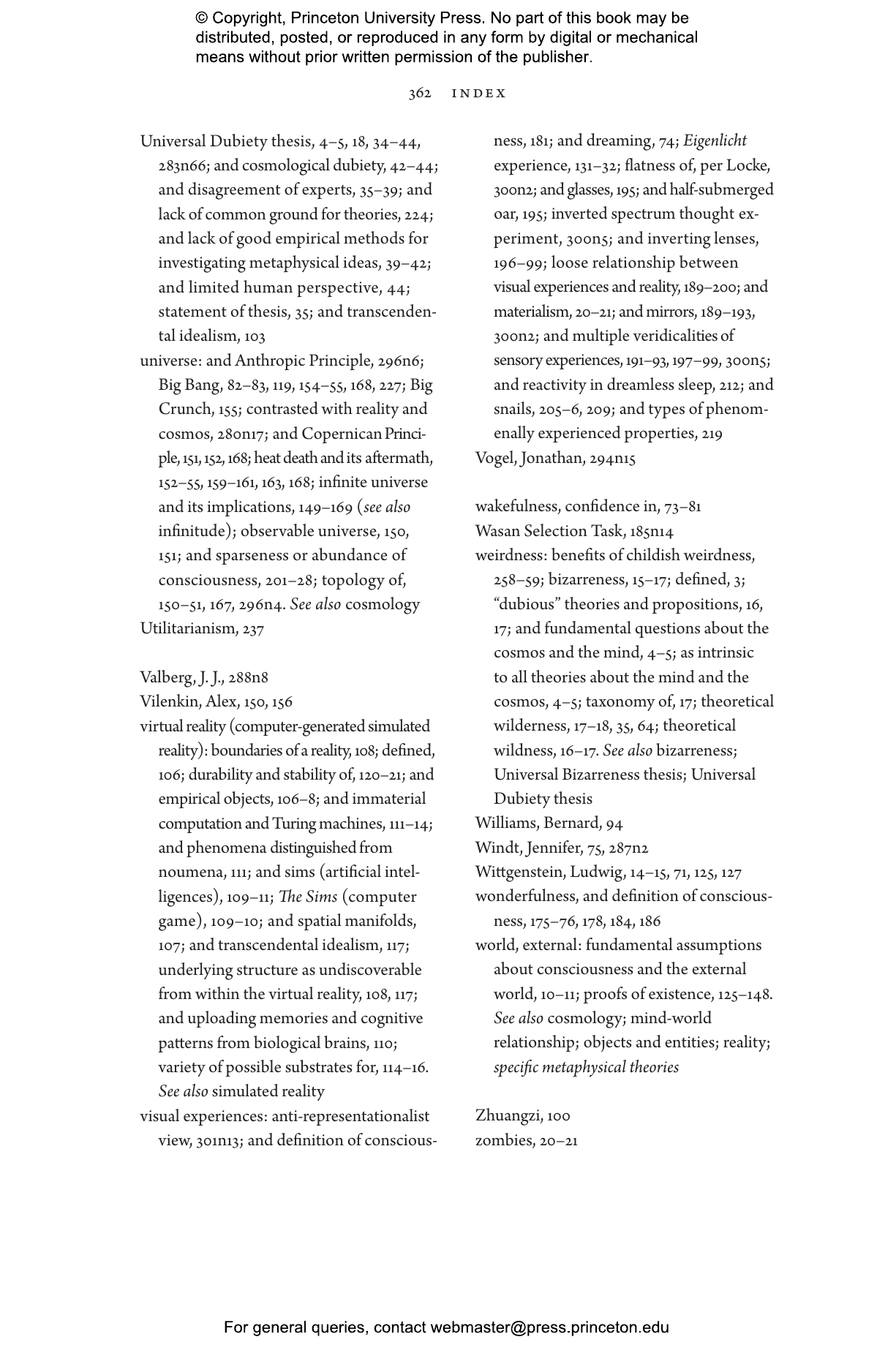Do we live inside a simulated reality or a pocket universe embedded in a larger structure about which we know virtually nothing? Is consciousness a purely physical matter, or might it require something extra, something nonphysical? According to the philosopher Eric Schwitzgebel, it’s hard to say. In The Weirdness of the World, Schwitzgebel argues that the answers to these fundamental questions lie beyond our powers of comprehension. We can be certain only that the truth—whatever it is—is weird. Philosophy, he proposes, can aim to open—to reveal possibilities we had not previously appreciated—or to close, to narrow down to the one correct theory of the phenomenon in question. Schwitzgebel argues for a philosophy that opens.
According to Schwitzgebel’s “Universal Bizarreness” thesis, every possible theory of the relation of mind and cosmos defies common sense. According to his complementary “Universal Dubiety” thesis, no general theory of the relationship between mind and cosmos compels rational belief. Might the United States be a conscious organism—a conscious group mind with approximately the intelligence of a rabbit? Might virtually every action we perform cause virtually every possible type of future event, echoing down through the infinite future of an infinite universe? What, if anything, is it like to be a garden snail? Schwitzgebel makes a persuasive case for the thrill of considering the most bizarre philosophical possibilities.
"[Schwitzgebel] leads readers down a fascinating rabbit hole of metaphysics, ontology, theories of causation, and the science of cognition. . . . It’s an exuberant look at some of life’s biggest questions."—Publishers Weekly
"Delightful and beautifully written. . . . If you have read and enjoyed the work of Nick Bostrom or Phillip Goff, then this book is definitely for you. It is brilliant, thought-provoking, and very enjoyable."—Eduoard Machery, Science
"Entertaining."—Andrew Robinson, Nature
"Schwitzgebel’s combination of sharp intelligence and wonderment generates refreshingly humbling conclusions."—Julian Baggini, Times Literary Supplement
"Schwitzgebel is an entertaining writer; this book is no exception."—Jo Edwards, Journal of Consciousness Studies
"For Schwitzgebel, something is weird if it runs contrary to the conventional; something is dubious if one is not compelled to believe it from an epistemological point of view; something is bizarre if common sense cannot explain it; and an idea is wild if it is both dubious and bizarre. . . . Schwitzgebel takes a playful approach to these complexities, abetted by the book’s delightful illustrations."—Choice
“We all want the world to conform to our common sense, but it stubbornly refuses to do so. Eric Schwitzgebel argues persuasively that this apparent weirdness is inescapable once we take the relevant issues seriously. This book will do the great service of helping people face up to all the ways the universe confounds our expectations.”—Sean Carroll, author of The Biggest Ideas in the Universe
“This wonderful book offers some of the most cutting-edge ideas in philosophy. The world is indeed weird! And it takes an insightful and unique mind like Schwitzgebel’s to illuminate its mysteries.”—Susan Schneider, author of Artificial You: AI and the Future of Your Mind
“Not for the faint hearted! In The Weirdness of the World, one of our greatest living philosophers makes a compelling case that the universe we live in is much stranger than we could have imagined. From AI to consciousness to skepticism about the external world, Schwitzgebel offers his own intriguing perspectives on the deepest philosophical mysteries. Philosophy geeks the world over need to read this book immediately.”—Philip Goff, author of Galileo's Error: Foundations for a New Science of Consciousness
“Most books on the great mysteries of existence and consciousness try to persuade you they have The Answer. This book is far richer for having an author who loves ‘to feel small and confused’.”—Susan Blackmore, author of Seeing Myself: The New Science of Out-of-body Experiences
“This intriguing book proposes that believing strange things is the price of thinking questions all the way through (can machines be people? is life a dream?), and convincingly reassures the anxious reader that it’s a price worth paying.”—Jordan Ellenberg, author of Shape: The Hidden Geometry of Information, Biology, Strategy, Democracy, and Everything Else



